Can People With Diabetes Get Tattoos? What You Need To Know
Figure out if it is a good idea to get inked despite your imbalanced blood glucose levels.
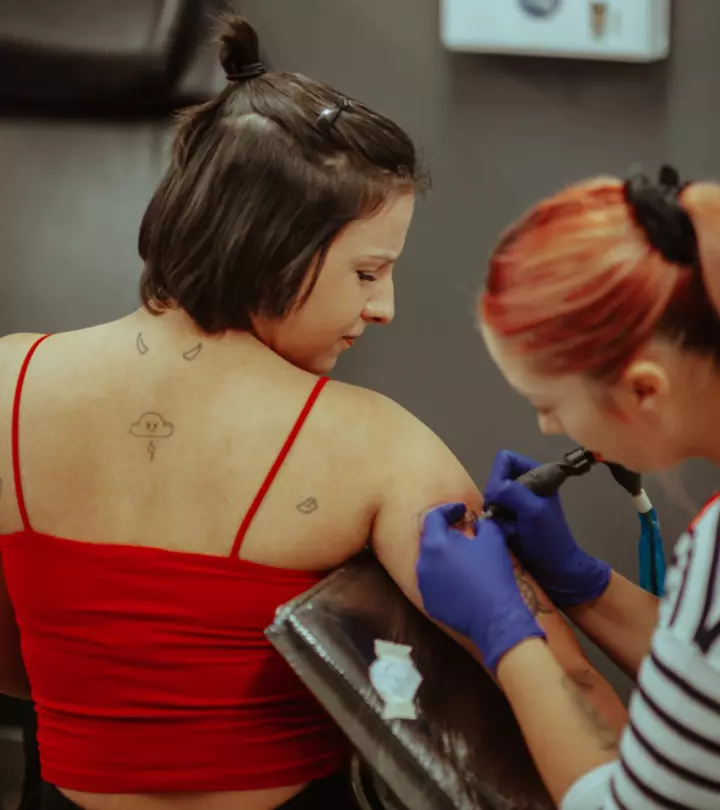
Image: Shutterstock
Tattoos serve as powerful expressions of individuality and personal stories. However, if you are an ink lover struggling with diabetes, one question that may often cross your mind is if you can ever get a tattoo. Chances are that people around you may have suggested you avoid doing so. Some individuals believe that it is okay for those with diabetes to get small tattoos. However, they should avoid the large, intricate ones. Others claim that tattoos can cause blood sugar levels to spike or drop in the long run and worsen diabetes symptoms.
While there might be some truth to a few of these statements, others are merely speculative viewpoints filled with misinformation. Getting a tattoo is a personal choice and if you decide to get one while dealing with type 1 or type 2 diabetesi A medical condition characterized by symptoms like frequent urination that affects the way your body processes blood sugar. , there are certain things you need to keep in mind. Scroll down to learn more!
In This Article
Can People With Diabetes Get Tattoos?
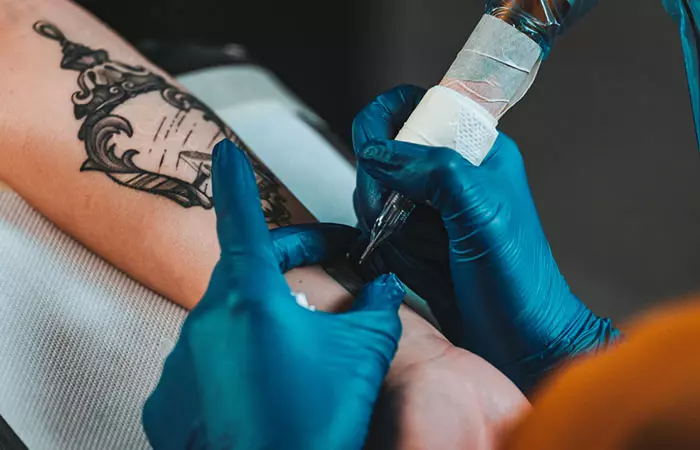
In general, a person with diabetes can get tattoos. However, they should take certain precautions before doing so. The most important of them is to talk to your doctor to ensure that your blood sugar levels are controlled, as elevated glucose levels may delay wound healing (1). This happens because the viscosity of blood increases when blood sugar levels increase, making it thicker (2).
Now, your blood contains white blood cells that are a part of the immune system. When these cells receive a signal that any body part is damaged, they move toward the wound site by squeezing through holes in the blood vessel walls to fight off infection (3). When the blood becomes thick, it takes longer for WBCs to get to the damaged site, delaying the wound-healing process.
If you can get your glucose levels in check, this slow wound healing may not be an issue, making it safe to get a tattoo. A Singaporean blogger mentioned that he was not sure about getting a tattoo due to his diabetes. He then met a friend with diabetes who had a lot of body tattoos. He writes, “I went on to talk to her and ask her advice, also went to the web to find out more and I realized that tattoos were ok for people with diabetes as well. They just have to control their sugar level so they heal properly (i).”
 Did You Know?
Did You Know?So, the first step to getting a tattoo if you have diabetes is to ensure your blood glucose levels are under control. Along with this, there are some other risks you need to keep in mind. In general, there are so many tattoo side effects you need to know before you take the body art plunge. But if you have diabetes, you need to be even more careful. Keep reading to know more.
Key Takeaways
- A person with type 1 or type 2 diabetes may get a tattoo if they manage to keep their blood sugar levels in check. Ignoring this may increase the risk of infection and delay wound healing.
- Some other adverse effects associated with getting tattoos with diabetes include the development of keloids, allergic reactions, and swollen lymph nodes.
- Before getting a tattoo you have to get the green signal to do so by your primary healthcare provider. Also, let your tattooist know about your condition to avoid any complications during the session.
- Once you get a tattoo, proper aftercare is important for healing it to minimize the risk of complications. Follow all the instructions given by your tattoo artist for it.
Risks Of Getting A Tattoo With Diabetes
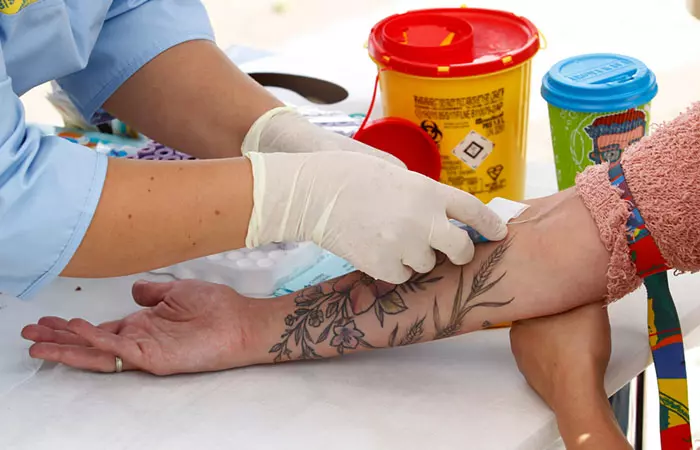
1. May Lead To An Infection
People with diabetes, both type 1 and type 2, are more susceptible to infections (5). When you get a tattoo, it involves breaking the skin barrier. This results in a wound. Now, the white blood cells in our body can help heal this wound and prevent it from getting infected (3). But, as mentioned earlier, when your blood sugar levels rise, the blood becomes thicker, making it hard for WBCs to reach the wound (2). This delay not only impairs wound healing but may also increase the risk of infection. And, an infected tattoo takes a long time to heal, especially if you have diabetes. Therefore, keeping your blood glucose in check and maintaining proper hygiene during and after the tattoo process is crucial to minimize this risk.
2. May Cause Keloids
There is no direct connection between diabetes and the development of keloidsi Thick raised scars that may occur after skin injuries like surgical incisions, tattoos, and acne heal. . However, anecdotal evidence suggests that if someone with diabetes gets a tattoo, basically wounding the skin, it may potentially increase their risk of abnormal scarring, including keloid formation. This may be because increased blood sugar levels in those with diabetes may cause complications in wound healing, as explained earlier. In general, research suggests that tattoos result in trauma to the skin that may cause keloids in some people (6). So, if your skin tends to scar a lot, you may want to reconsider getting a tattoo.
3. May Lead To Allergic Reactions
Allergic reactions
to tattoos are rare. However, if they occur, they can turn out to be problematic. For instance, according to a case study, a 62-year-old woman with type 1 diabetesi A medical condition where the body produces little to no insulin, a hormone that regulates your blood sugar levels. , experienced swelling in the forehead area. She also developed scarring alopeciai A type of hair loss that occurs due to the destruction of hair follicles and is usually the result of infections and burns. three years after getting a permanent eyebrow tattoo. When a sample of her affected skin was tested in a lab, it showed abnormal clusters of cells and inflammation throughout the skin layers. The overall diagnosis was a reaction similar to sarcoidosisi The growth of tiny lumps in different parts of the body that show symptoms like tiredness and fever. , triggered by the tattoo (7).
While this was a case of a long-term complication, allergic reactions may also occur during the initial phase of the tattooing, especially if you are allergic to any of the ingredients in the tattoo ink. Therefore, always let your tattoo artist know about any of your allergies in advance. If you are not sure about your allergy triggers and notice redness and severe inflammation after getting a tattoo, immediately consult a dermatologist.
4. May Lead To A Rise In Blood Sugar Levels
The process of getting a tattoo can be stressful due to the pain that comes with it. Research shows that this may result in the release of stress hormones and cause your blood sugar levels to rise (8). So, try to stay as relaxed as possible during the tattooing process. Also, consult with your healthcare provider or tattoo artist about using a numbing cream before the tattoo process.
 Quick Tip
Quick Tip5. May Cause Swollen Lymph Nodes
This may happen in healthy individuals as well as in those with diabetes. Research suggests that skin cells containing tattoo ink pigments may move towards the lymph nodesi Small, bean-shaped structures that act as filters for harmful substances such as cancer cells and viruses that may harm the body. and cause them to swell (9). Sometimes, this may also cause the lymph nodes to become pigmented. A similar thing happened to a 44-year-old woman with breast cancer. She also had cancer cells in the lymph nodes located in her armpit. During her surgery, the doctors found that some of her lymph nodes were black in color. They sent them for a detailed examination to rule out any cancerous involvement and found out that this occurred, as she had a large arm tattoo (9).
6. May Cause A Feeling Of Regret
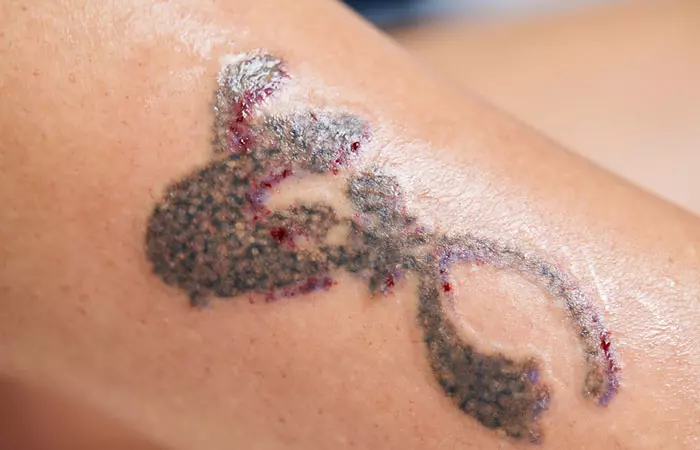
Tattoos are permanent and chances are, if you are not too sure about them, you may end up wanting to remove them afterward. The process of tattoo removal can be painful and costly. It is also complicated and may not always be successful, leaving behind a faded tattoo that looks like a ghost image (10). Anecdotal evidence also suggests that laser tattoo removal is less likely to be approved for patients with diabetes.
 Quick Tip
Quick TipNow that you know all the risks associated with getting a tattoo with diabetes, it is also important to know about the precautions you can take to prevent some of these side effects.
effects. While there are some general tips on how to prepare for a tattoo, the next section covers specific pointers for those with diabetes.
Precautions To Take While Getting A Tattoo With Diabetes
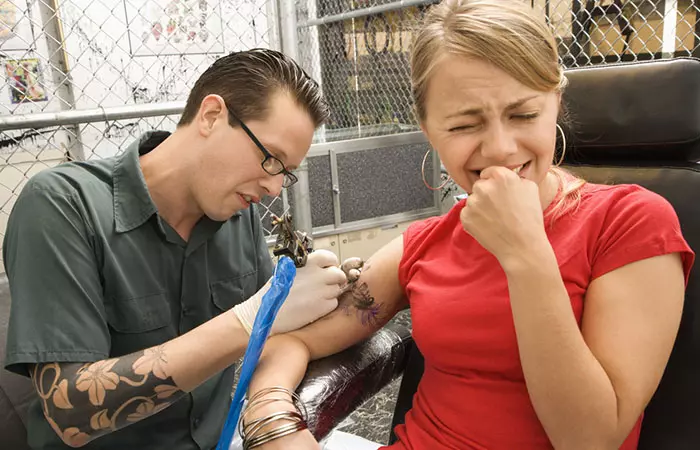
- Before getting a tattoo, consult with your healthcare provider, especially if you have poorly controlled diabetes or any other health complications like high blood pressure issues and heart disease.
- Opt for only professional and reputable tattoo artists who work in clean and licensed studios. Ensure they follow proper hygiene and sterilization procedures to minimize the risk of infection.
- Keep your diet in check to ensure that your blood sugar levels are well-controlled in the days leading up to your tattoo appointment. Your doctor may require you to get blood-tested or use a glucometer to check your levels.
- Always inform your tattoo artist about your condition or if you feel any discomfort during the process. This will help them avoid potential complications that may arise during the process.
- Keep your skin well-moisturized before the appointment to promote better healing. Avoid any lotions or ointments that may irritate the skin.
- If you are getting a tattoo for the first time, opt for a smaller design to reduce the time spent in the chair and minimize stress. This will also help you check how your body reacts to getting a tattoo.
Once you get your tattoo, there is another thing that you need to take care of – its healing process. Learn what you need to take care of while doing so in the next section.
Tattoo Healing Tips For Those With Diabetes
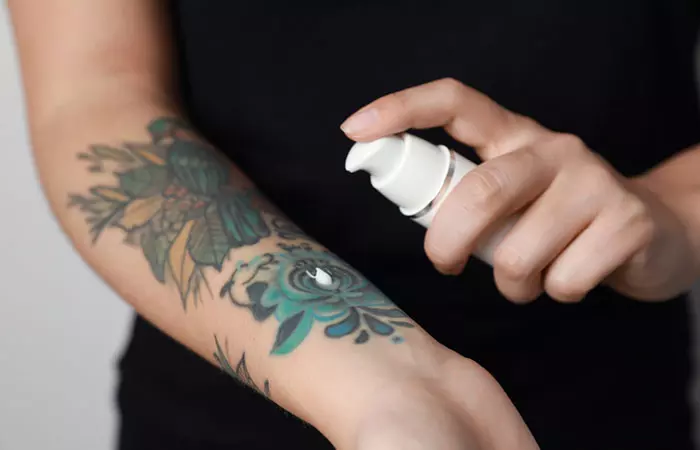
Tattoo aftercare is for its healing! Everyone should know how to take care of a new tattoo. However, individuals with diabetes need to be extra careful about it to minimize the risk of complications. Here are some general guidelines for those with diabetes:
- Maintain your blood sugar control before and after getting a tattoo, as fluctuating blood sugar levels may affect the healing process (1).
- Your tattoo artist will provide specific aftercare instructions like avoiding activities like swimming that may compromise the healing process. Follow them properly.
- Once you remove the plastic wrap from the tattoo, wash it with a mild, antibacterial, fragrance-free soap and warm water. Avoid washing your tattoo with cold or hot water.
- Pat it dry with a clean paper towel or a soft towel. Then let it air dry for a bit. You should avoid rubbing the tattoo, as it may irritate the skin.
- Apply a thin layer of the hypoallergenic, fragrance-free, moisturizer to keep the tattoo hydrated. Avoid petroleum-based products, as they may clog pores.
- Wear loose, breathable clothing to prevent irritation and allow the tattoo to breathe.
- Avoid swimming in pools, hot tubs, or soaking in baths during the initial healing period to prevent infections or as suggested by your tattoo artist.
- Look out for signs of infection, such as increased redness, swelling, pus, or prolonged pain. If you notice any of them, consult your doctor immediately.
- Protect your tattoo from direct sunlight during the healing process. Once it heals, apply sunscreen with at least SPF 30 or higher to prevent fading and sun damage.
While people with type 1 or type 2 diabetes can certainly get their favorite tattoo, they must ensure that their blood sugar levels are in check before doing so. You should consider getting a tattoo only after getting the go ahead from your healthcare provider. It is also important for you to stay hydrated, manage stress levels, get adequate rest, and prioritize your overall health to ensure quick healing. Along with this, make it a point to adhere to the proper aftercare instructions recommended by your tattoo artist to minimize potential risks and ensure a safe and successful tattoo experience. If you notice any adverse reactions after getting your tattoo or a delay in wound healing, please consult a healthcare professional immediately.
Frequently Asked Questions
Can those with diabetes get microblading?
Yes, people with diabetes can opt for microblading. However, this semi-permanent tattooing technique requires the use of a blade consisting of stacked needles that inject ink pigments to the skin (11). While it does not cause as much injury as the traditional tattooing process, it may still lead to a little damage to the skin that requires healing. Therefore, contact your healthcare provider to ensure that your blood sugar levels are in check to promote effective wound healing (1).
Are there specific body areas that are better for those with diabetes to get tattoos?
Yes, anecdotal evidence suggests that individuals with diabetes should avoid getting tattoos in areas with poor blood circulation like ankles and shins. Instead, they should opt for areas with proper circulation like upper arms and outer thighs. However, it is best to consult your healthcare provider and tattoo artist regarding it to avoid complications.
Can diabetes medications affect the tattooing process?
Yes, certain diabetes medications like blood thinners may affect the tattooing process by increasing the risk of bleeding during and after the procedure (12). Therefore, it is important to inform your tattoo artist if you are on any such medications.
Is the pain of getting a tattoo different for those with diabetes?
No, there is no evidence that states that the pain of getting a tattoo is different for individuals with diabetes. Ideally, when it comes to getting a tattoo, the pain is subjective and depends on several factors like the location of the tattoo and the pain threshold of a person.
Are there specific tattoo inks or dyes that individuals with diabetes should avoid?
No, there is no specific type of tattoo ink or dye that those with diabetes should avoid. However, some individuals may be allergic to certain types of tattoos that use red ink (13). It is best to avoid these colors to prevent any complications. You may talk to your tattoo artist regarding the same.
People with diabetes are often doubtful about getting tattoos. If you are among them and want to get inked, check out this video to figure out whether it is the right choice for you or not.
Personal Experience: Source
StyleCraze's articles are interwoven with authentic personal narratives that provide depth and resonance to our content. Below are the sources of the personal accounts referenced in this article.
(i) Medic alert tattoohttps://whitehawkviews.blogspot.com/2007/12/medic-alert-tattoo.html
References
Articles on StyleCraze are backed by verified information from peer-reviewed and academic research papers, reputed organizations, research institutions, and medical associations to ensure accuracy and relevance. Read our editorial policy to learn more.
- Diabetic wound-healing science
https://www.ncbi.nlm.nih.gov/pmc/articles/PMC8539411/ - Hemorheological disorders in diabetes mellitus
https://www.ncbi.nlm.nih.gov/pmc/articles/PMC2769810/ - Blood groups and red cell antigens [Internet]
https://www.ncbi.nlm.nih.gov/books/NBK2263/ - A new purpose for tattoos: medical alert tattoos
https://pubmed.ncbi.nlm.nih.gov/22647627/ - Diabetes mellitus and infections
https://www.ncbi.nlm.nih.gov/books/NBK569326/ - Keloid
https://www.ncbi.nlm.nih.gov/books/NBK507899/ - Severe adverse events related to tattooing: a retrospective analysis of 11 years
https://www.ncbi.nlm.nih.gov/pmc/articles/PMC3519250/ - Stress-induced diabetes: a review
https://www.ncbi.nlm.nih.gov/pmc/articles/PMC9561544/ - What is the color of your lymph node?
https://www.ncbi.nlm.nih.gov/pmc/articles/PMC6326623/ - Complications of tattoos and tattoo removal: stop and think before you ink
https://www.ncbi.nlm.nih.gov/pmc/articles/PMC4411590/ - Microblading and the science behind it
https://www.ncbi.nlm.nih.gov/pmc/articles/PMC7982014/ - Anticoagulation safety
https://www.ncbi.nlm.nih.gov/books/NBK519025/ - Inflammatory reactions to red tattoo inks
https://www.ncbi.nlm.nih.gov/pmc/articles/PMC6132509/
Read full bio of Anastasiia Gatsko
Read full bio of Joyce Joyson
Read full bio of Anjali Sayee
Read full bio of Aparna Harry






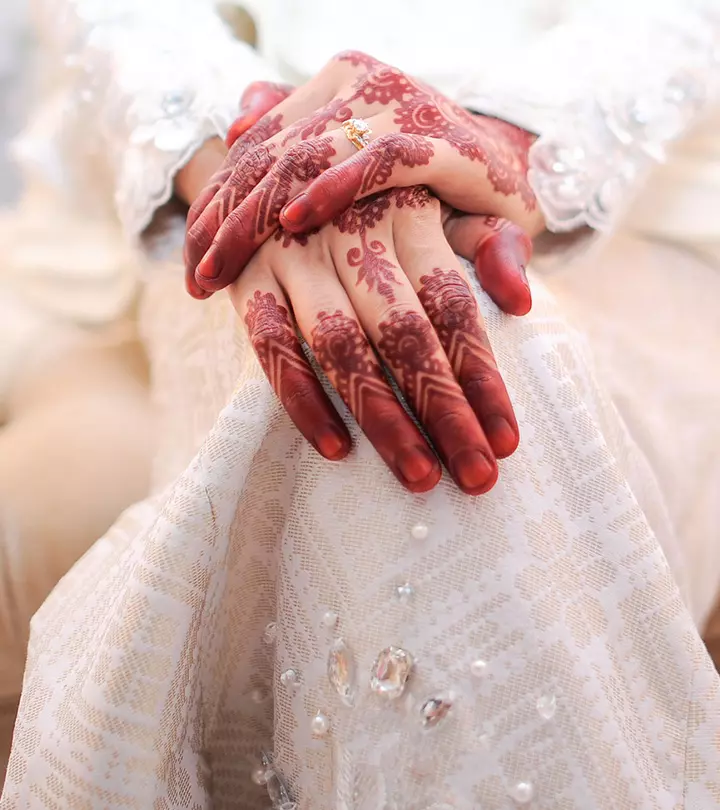

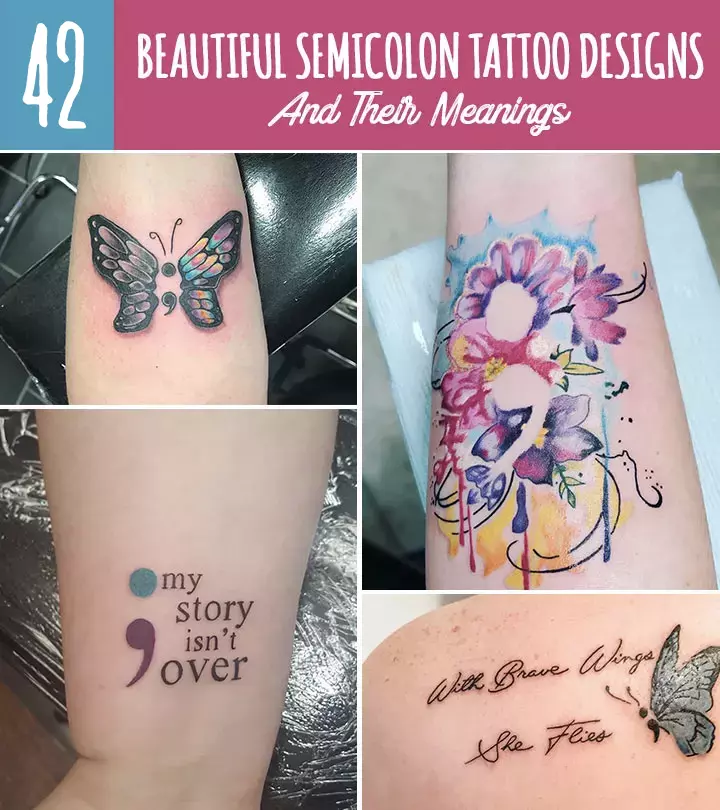
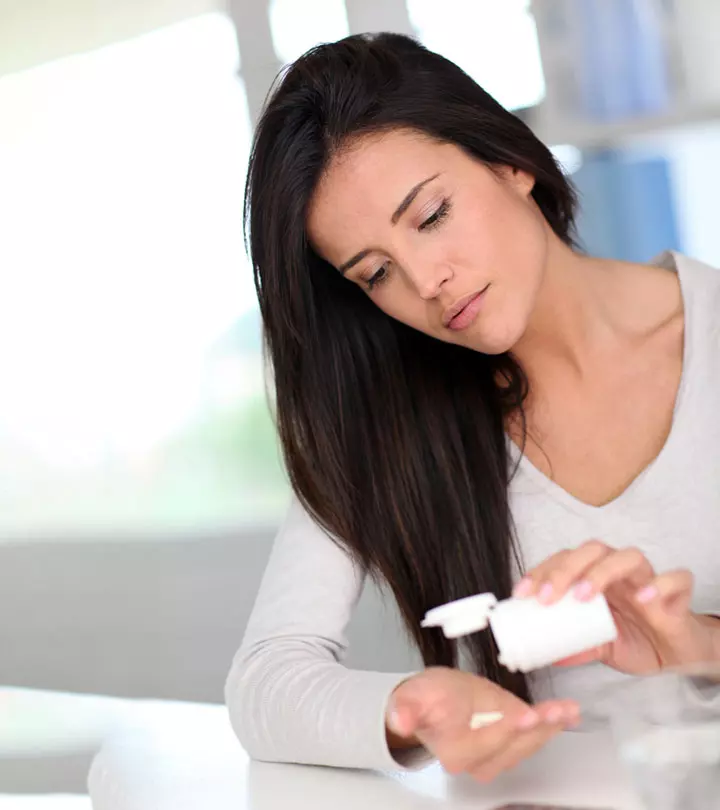
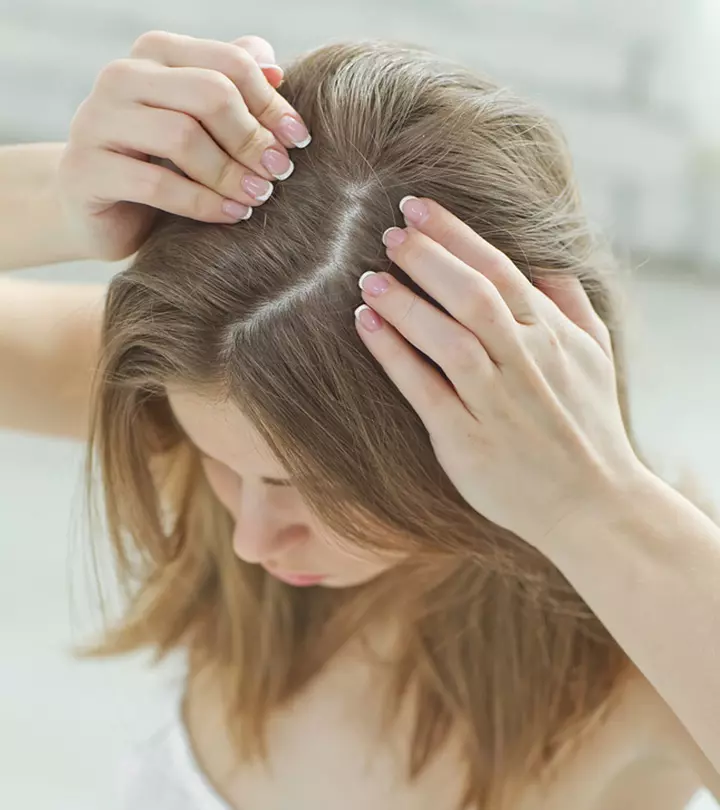


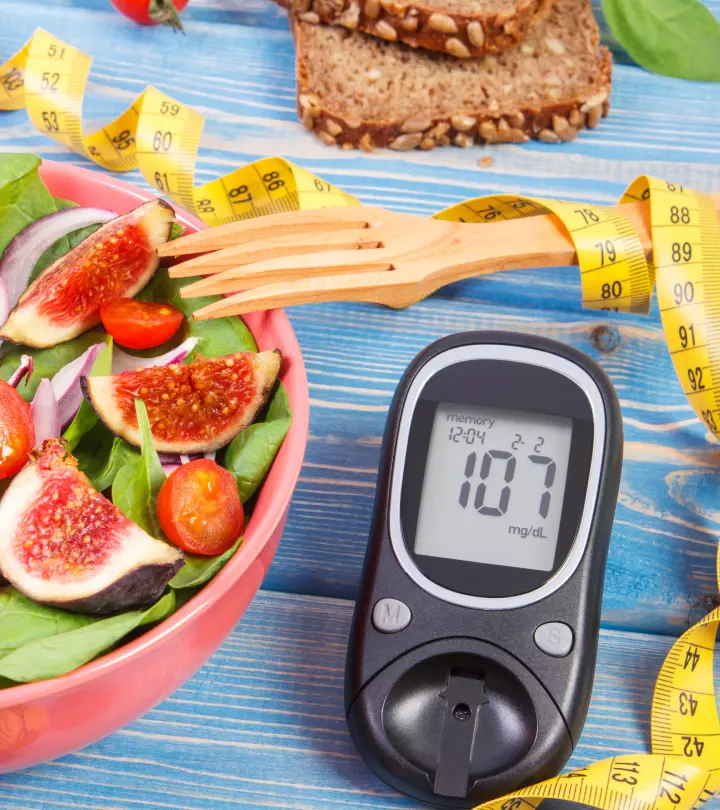

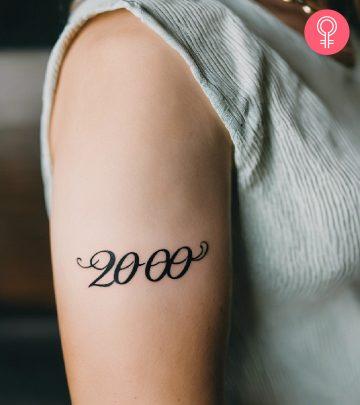

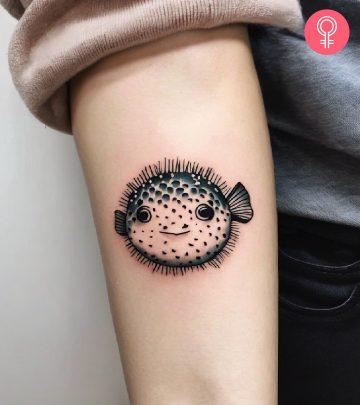
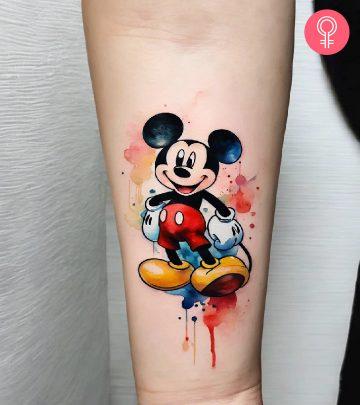


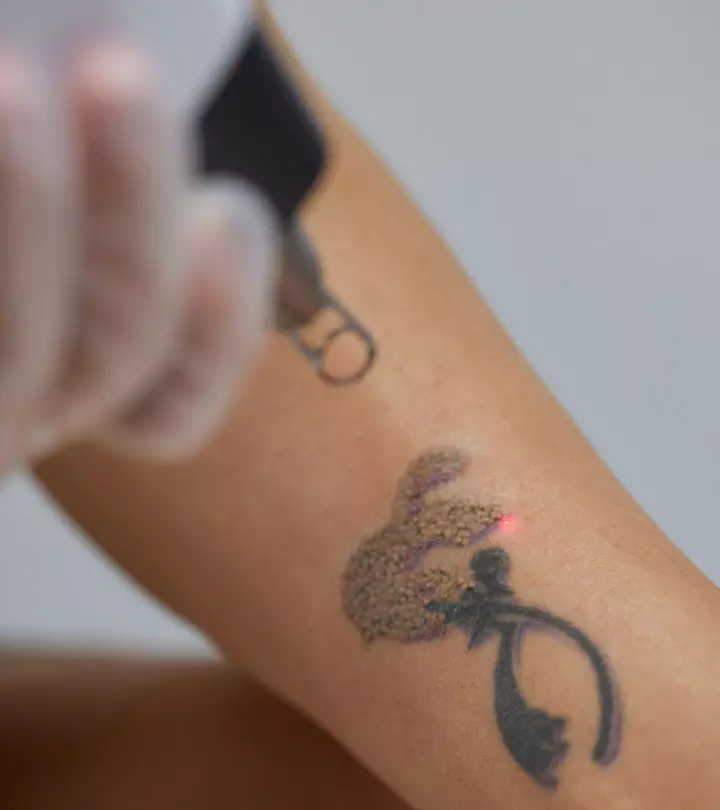

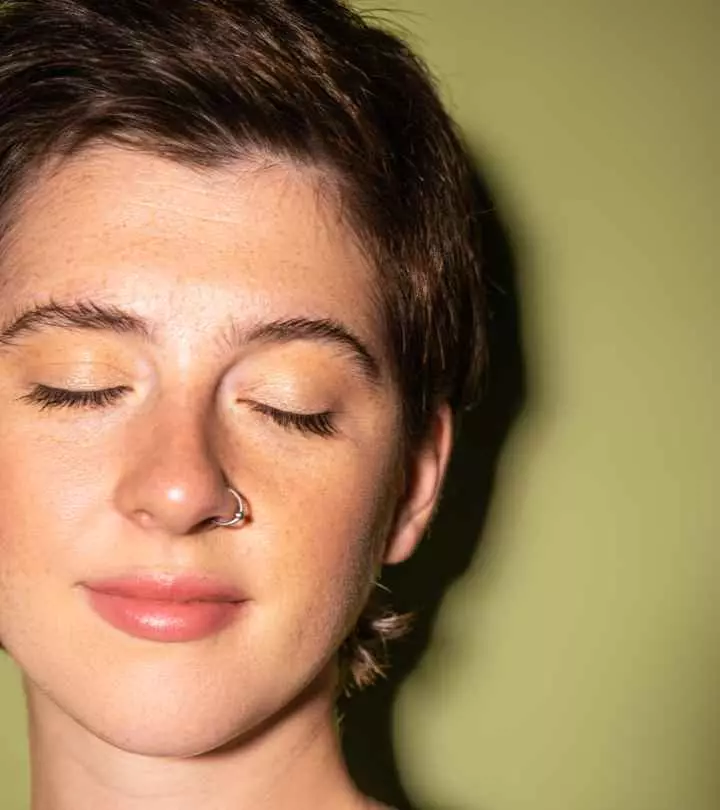


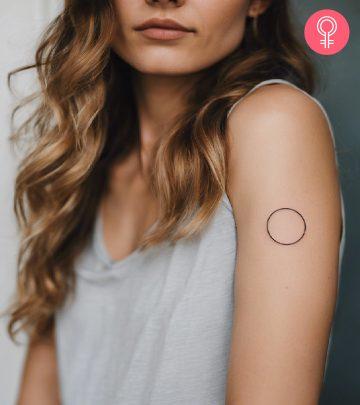
Community Experiences
Join the conversation and become a part of our empowering community! Share your stories, experiences, and insights to connect with other beauty, lifestyle, and health enthusiasts.